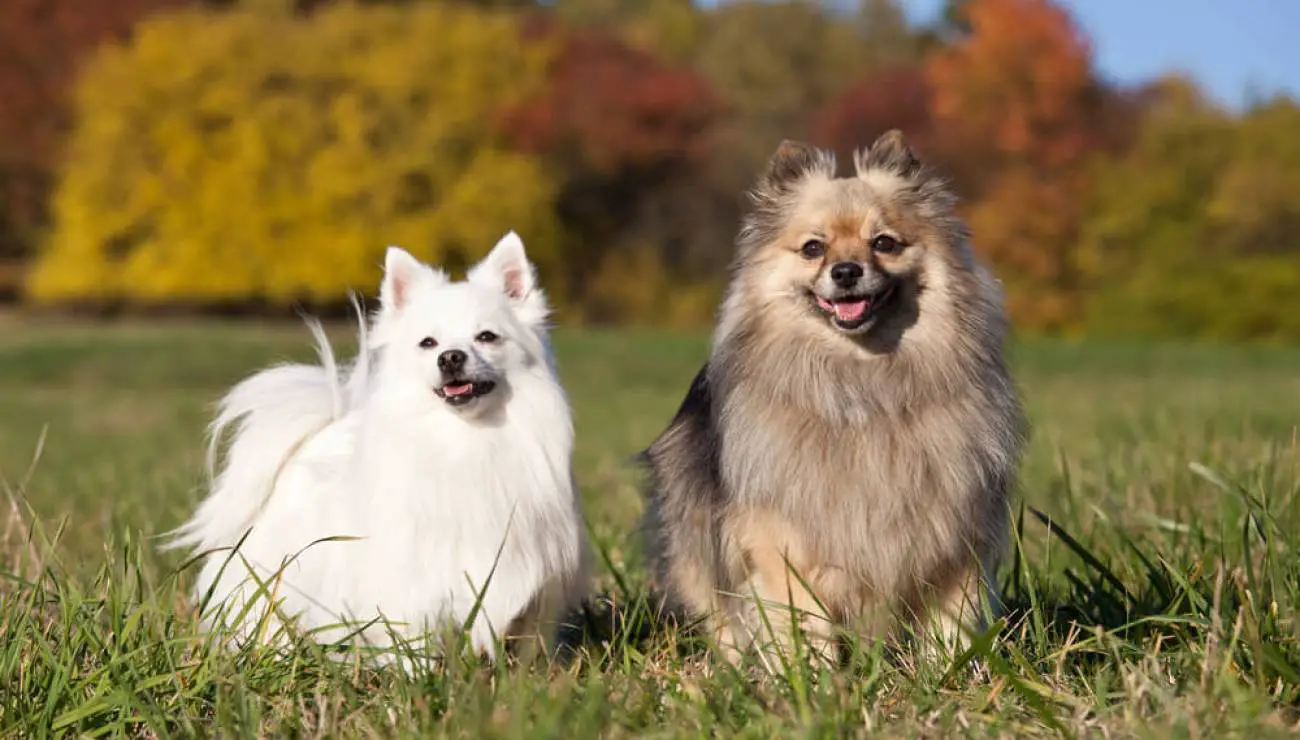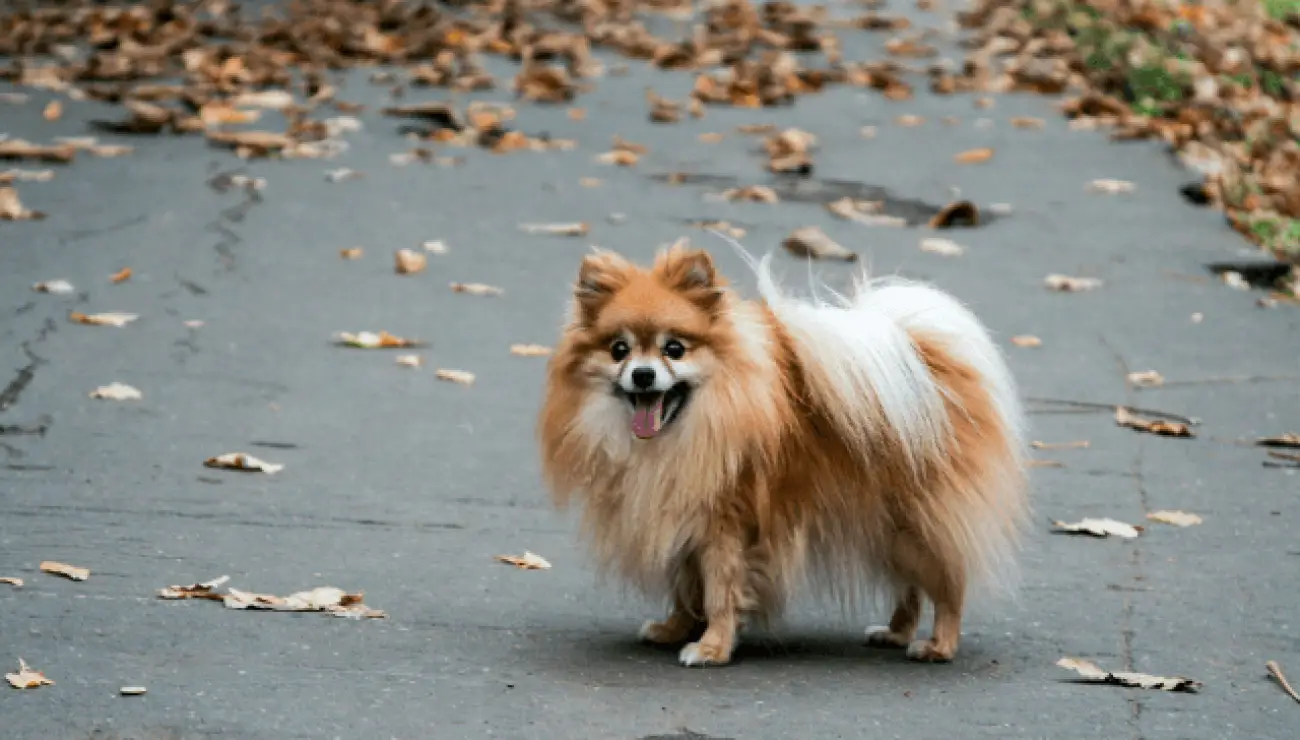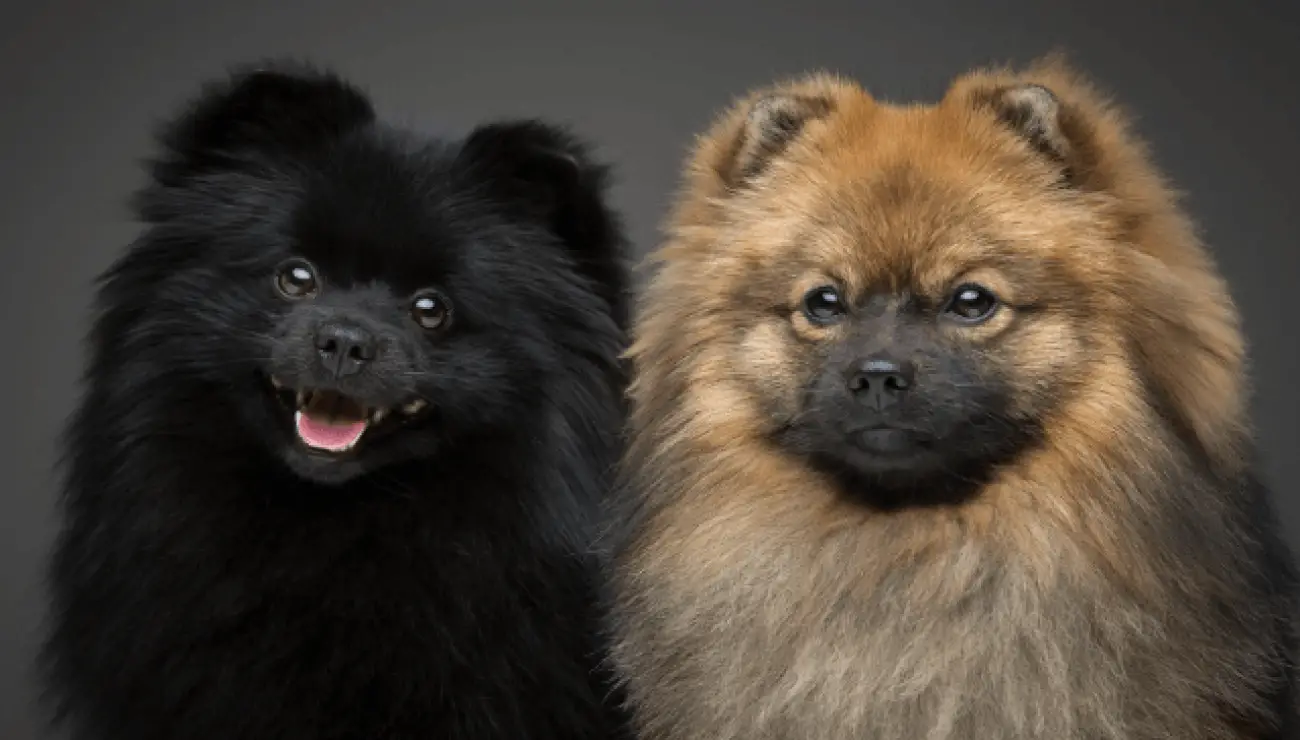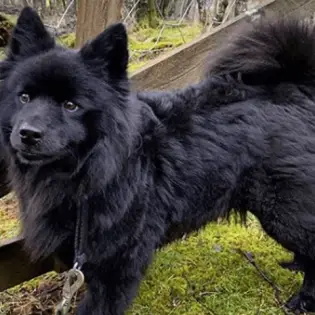German Spitz
German Spitz is a classic spitz-type dog originating from Europe. Very lively, intelligent, and attentive, these dogs fill the role of companions. One of their most common features is their unique coat with the mane-like collar around their necks, which is sometimes called their hallmark.
These are very teachable dogs with the desire to please the owner, and that makes training them very easy. German Spitz will be good watchdogs because they are distrustful of strangers and will alert you for any sign of trouble.
German Spitz variantes
There are 3 main variants of these dogs: giant, standard, and miniature, but the FCI - Fédération Cynologique Internationale consider their cousins – Keeshond and the Pomeranian as a part of the German Spitz dog breed.

Height:
12-15 in (30-38 cm)

Weight:
24-26 lb (11-12 kg)

Origin:
Germany

Life Expectancy:
13-15 years
Dog Breed Characteristics
Standard
- Giant Spitz: 17 in (45 cm) ± 2 in (5 cm)
- Medium Size Spitz: 14 in (35 cm) ± 2 in (5 cm)
- Miniature Spitz: 10 in (27 cm) ± 1 in (3 cm)

Grooming
German Spitz has a beautiful fluffy double coat that comes in variants of colors, including orange, black, wolf gray, brown and white. The outer coat is straight and long, and the inner coat is woolly and soft. With these dogs, you must be prepared for a lot of hair during shedding seasons (twice a year). During that period, you must brush your dog daily to remove all the dead hair and minimize the amount of hair around the house.
The good news is that these dogs don't shed much outside of the shedding seasons. A few short brushing sessions during the week will do the trick and keep their hair under control. Also, regular brushing will prevent mats from forming.
German Spitz doesn't require frequent baths. If the dog rolls into something dirty, you can easily brush it out from their coat.
Care tips:
- trim their nails if you hear them clicking on the floor
- brush their teeth regularly to prevent gum diseases and bad breath
- check their ears for any infection signs (bad odor, redness, etc.)

Exercise
German Spitz are moderately active dogs with whom you can take a few daily walks, and your dog will be happy and satisfied. If you decide to go on long walks, your dog will be more than happy to keep you company.
TIP: It is recommended that you only let your dog off-leash in the secured areas since they have a tendency to explore and go on an adventure.
Exercising these dogs shouldn't be a problem. Besides daily walks, your dog will enjoy all kinds of indoor activities, including games like hide and seek, learning new tricks, chasing the ball, etc.
Although they don't require a lot of exercise, you must be careful that your dog doesn't become bored because they can start to bark excessively.
Training and socialization
German Spitz are highly intelligent dogs that will pick up your commands very fast. They are very eager to please their owner, and that makes training even easier. Take note that these dogs don't like harsh treatments during training. Always use positive methods when training your dog that includes a lot of treats and praise.

These are small dogs, and you may think that they don't need socialization. Every dog, no matter how small or how big is needs early and proper socialization so that he can learn how to react in many different life situations. To do that, you must expose your dog to many different new sounds, people, and animals.
If you are not sure how to properly socialize your dog we advise you to search for professional help.
German Spitz are barkers, and they will bark on everything new or suspicious. Their barking makes them excellent watchdogs, but still, you will have to teach your dog when is ok to bark. Otherwise, you can have a lot of angry neighbors.
German Spitz and kids
Since these are small dogs, they could easily get hurt if the children don't know how to properly interact with the dog. They get along excellently with older kids who know how to play with such a tiny and fragile dog.

German Spitz and other animals
In most cases, these dogs will be the happiest if there are no other pets in the household. They can, however, get along well with everybody, and here is where proper socialization plays its part. Before letting your dog play with other canines, you need to do it properly and slowly introduce them.

Health problems
German Spitz are healthy dogs with a lifespan of 13-15 years. Like all dog breeds in the world, they are prone to some health problems, but that doesn't mean your dog will develop them. It is better that you know all possible health problems so you can properly and on time react if you notice some symptoms in your dog.
Problems that occur with German Spitz dogs:
- retinal dysplasia
- patellar luxation
- Pra – progressive retinal atrophy
German Spitz Breeders
German Spitz are very popular dogs around the world you should be very careful when searching for breeders. Because of their popularity, many shady, bad, and puppy mill breeders started to breed their dogs in order to earn money without worrying about puppy health.
That is why we advise you to only talk to the official and responsible breeders so you can have a dog that will not have any inherited diseases.
If you have any questions about these dogs, you can always ask the breeders, and they will gladly answer all your questions because it is also in their best interest that their puppies go into a good home.
German Spitz are excellent companions whit whom you can enjoy spending days. Very intelligent, devoted, and lively, these dogs will be the best companion you could ask for.
World Dog Finder team

Updated at31.08.2023.
Breed History
German Spitz is one of the oldest dog breeds originating from Europe. From an early age, fishermen and traders took these dogs with them so they could be watchdogs for their goods. Farmers used these dogs to alert them for any signs of intruders. German Spitz used to sit on something high and use their high-pitched bark to alert there were strangers present.
In the 18 century, these dogs were favored by royalty and the upper class in England. The First world war nearly destroyed the breed, and it wasn't until 1975 that the number of these dogs started to rise again.
FUN FACT: German Spitz dogs were introduced to the AKC – Foundation Stock Service in 1996
















Share